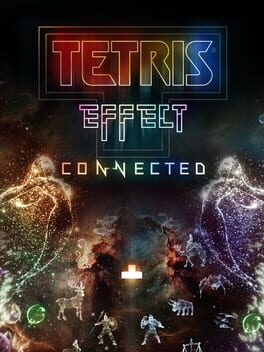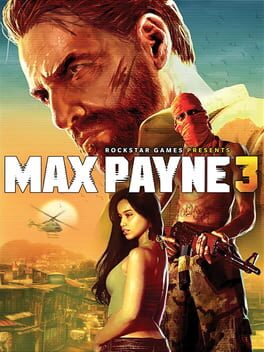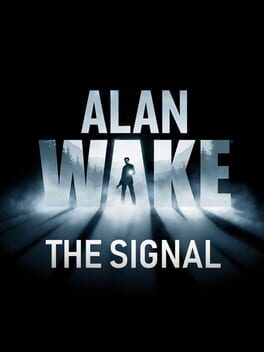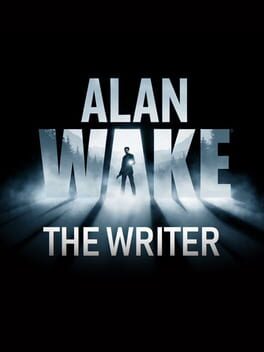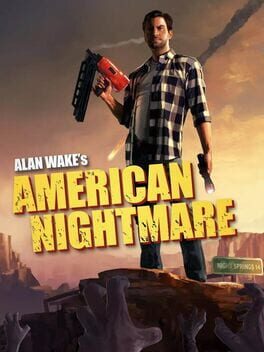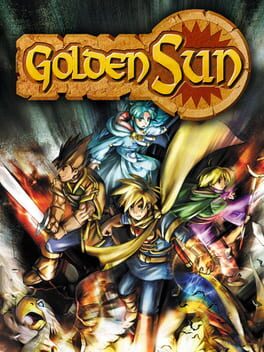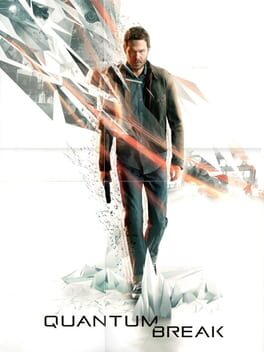SuperScabs
2012
The vibes are all wrong, but maybe that's the point. Max feels decidedly different from the previous entries, dumber and much angrier at the world and himself. The previous Max resigned himself to his noir existence, but maybe this one has been stewing in it too long. A man forced to live in constant noir is gonna become a freak, just look at Bogart. I need to ruminate on this one and 2 for a bit; they both seem to have more going on under the hood. Might replay all 3 once I've finished up Remedy.
Really wish the other DLC had been this smooth, not that there's much more going on here. These two episodes expand the subtext in an interesting enough way though, not just dealing with a newly created work, but expanding it into a series. The nightmare of following up a work and the hope of fulfilling a vision.
I really appreciate the way they carry the subtext from the first game, but I don't appreciate how lacking everything else is. These levels don't have much going on to begin with and having to repeat them several times over is just a drag. The combat is more "fluid", but also way more shallow. It seems a lot of people find this to be better gameplay, but it's just easier because they didn't take the time to consider balancing. At some point they decided to just throw ammo around every corner and make enemy health pools as shallow as possible. It feels like a game made under a deadline, and likely was, but at least has enough aesthetic and narrative to carry it. Still it feels two hours too long.
2001
This one took time to grow on me. If someone played this like a standard rpg, I think they may be bored to tears. The main cast mostly has nothing going on. Like there's enough there to distinguish them, but outside of that they're more like lightly toasted white bread. What makes it for me is the sense of world. It feels like this place has stuff going on. Little rivalries and discussions amongst the towns and cities. The characters acknowledge you when you come back home and they respond to changes in the world. The puzzles seem like they're working towards something more. Feels like they're figuring it out, but I like how psynergy is grounded in interactions with the environment. Like the fact that you can read everyone's mind is fantastic.
Outside of that the combat initially felt very standard rpg, but when the tough battles came the djinn really shined. You need to balance the stat drops it takes to use them while prepping summons, while also making sure you don't take too many that important psynergies drop off. When it works, it really works, but unfortunately it was just for a handful of good bosses. Outside of that it's the general standard rpg encounter affairs. This didn't grate on me though, mostly because I'm playing it the way it was originally intended, while commuting to work and on my lunch breaks. When taken in small chunks, it's a very cozy game. I can't remember, but someone said something similar of DQ11. This is one of those that should be taken piecemeal and casually. I'm very excited to finally give Lost Age a shot. According to everyone that's where this series really shines and if it's anything like this, it should be great.
Outside of that the combat initially felt very standard rpg, but when the tough battles came the djinn really shined. You need to balance the stat drops it takes to use them while prepping summons, while also making sure you don't take too many that important psynergies drop off. When it works, it really works, but unfortunately it was just for a handful of good bosses. Outside of that it's the general standard rpg encounter affairs. This didn't grate on me though, mostly because I'm playing it the way it was originally intended, while commuting to work and on my lunch breaks. When taken in small chunks, it's a very cozy game. I can't remember, but someone said something similar of DQ11. This is one of those that should be taken piecemeal and casually. I'm very excited to finally give Lost Age a shot. According to everyone that's where this series really shines and if it's anything like this, it should be great.
2016
I need to ruminate on the narrative because I think there's a bit more going on there, but gameplay wise this has nothing going on. Continues the trend of Remedy having stylish at best gameplay with some decent narrative to chew on. A shame then that the experimental TV portions have the same quality as a CW tv show and also have basically no bearing on the actual plot. A few of the characters pop up, but once they arrive in the narrative they're either killed off or thrown away pretty quickly with the exception of Beth. Also hate how much the files and diagrams are both necessary to understanding the world and slow the pacing down to a halt. It made sense in Alan Wake because the pages directly foreshadowed events to come, but none of them were needed to understand the plot. The secondary, or maybe major, antagonist's whole motivation can be missed if you overlook one those near the end.
I need to think on it more because it is taking some swings about terrorism, protest, and corporatization, but there's just so much filler between the interesting bits that this left me more confused than anything. Respect that they took alot of risks here, I'm just feeling like this is more refinement in service of better games they have down the line. Having played a good portion of Control at the time of writing, I can say this is a good step towards that, for good and for bad, but thankfully more good.
I need to think on it more because it is taking some swings about terrorism, protest, and corporatization, but there's just so much filler between the interesting bits that this left me more confused than anything. Respect that they took alot of risks here, I'm just feeling like this is more refinement in service of better games they have down the line. Having played a good portion of Control at the time of writing, I can say this is a good step towards that, for good and for bad, but thankfully more good.
